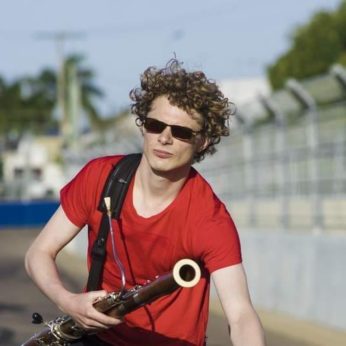Composer: Francis Poulenc (b. 1899 - d. 1963)
Performance date: 28/06/2022
Venue: St. Brendan’s Church
Composition Year: 1939
Duration: 00:18:25
Recording Engineer: Simon Cullen, Ergodos
Instrumentation: fl, ob, cl, bn, hn, pf
Instrumentation Category:Sextet
Artists:
Alasdair Beatson -
[piano]
Orsino Ensemble (Adam Walker [flute], Emmanuel Laville [oboe], Matt Hunt [clarinet], Alec Frank-Gemmill [horn] Bram van Sambeek [bassoon]) -
[Wind Quintet]

Francis Poulenc [1899-1963]
Sextet for piano, flute, oboe, clarinet, bassoon and horn [1931-1939]
The Sextet was first heard in its original version in 1931. However the composer was not satisfied and re-worked it several times before reaching a final, definitive form in 1939. It was premiered in December 1940 in the early months of the German Occupation of Paris and was eventually published in Copenhagen in 1945. It has become a great favourite of chamber music festival audiences and musicians.
It is almost impossible to know when to take Poulenc seriously, there is always an atmosphere of tongue-in-cheek surrealism about his music. If he spins a romantic air you can be sure his sense of the ridiculous will get the better of him soon. There can be no better antidote to the intensity of the Austro-German school of music making than exposure to Poulenc’s lightness of spirit.
The work opens with a dramatic flourish, immediately mocked before the instruments set off in surreal hot pursuit of each other. Two more themes are knocked around before we are dazzled by a delightful sentimental tune in a contrasting slow tempo. This gets gorgeous treatment before it comes to a sticky end and the furious tempo of the first half returns.
The Divertissement is exactly that with another slow sweet tune bracketing a swift and jovial acceleration. It ends in a mood of almost Mozartian repose. The last movement sets off in a wild Prestissimo but surprisingly decides to end in a mood of solemn apotheosis.
Francis Humphrys
Copyright © 2024 West Cork Music. All rights reserved.
Designed and developed by Matrix Internet